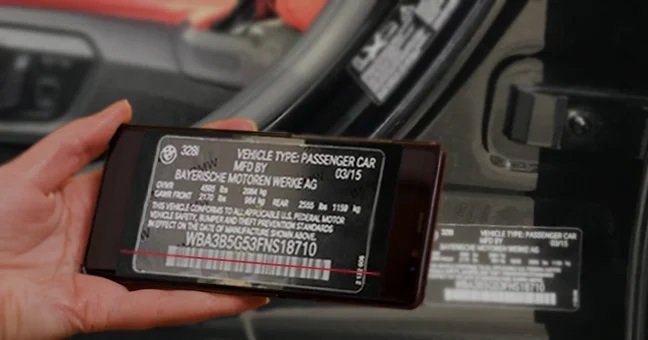Vehicle registration is a fundamental aspect of automotive ownership, serving as a means of documenting vehicle ownership, ensuring compliance with regulatory requirements, and facilitating law enforcement efforts. Traditionally, vehicle registration processes have been cumbersome and time-consuming, often involving manual documentation and verification procedures. However, with the advent of VIN lookup technology, vehicle registration processes have been streamlined, offering numerous benefits for consumers, government agencies, and automotive industry stakeholders alike. In this article, we’ll explore how VIN lookup technology is revolutionizing vehicle registration processes and enhancing efficiency across the board.
Automating Data Entry and Verification
One of the primary advantages of VIN lookup technology is its ability to automate data entry and verification processes during vehicle registration. By scanning the Vehicle Identification Number (VIN) encoded on the vehicle’s dashboard or door frame, registration authorities can quickly retrieve detailed information about the vehicle from centralized databases. This automation minimizes errors, reduces paperwork, and expedites the registration process for vehicle owners and administrative staff.
Ensuring Accuracy and Compliance
VIN lookup technology ensures accuracy and compliance with regulatory requirements by accessing up-to-date information about the vehicle’s make, model, year of manufacture, and specifications. By cross-referencing VIN data with official records and databases, registration authorities can verify the authenticity of the vehicle and confirm its compliance with safety and emissions standards. This level of accuracy helps prevent registration errors and ensures that vehicles meet regulatory requirements before being permitted on the road.
Enhancing Security and Fraud Prevention
VIN lookup technology enhances security and fraud prevention measures by detecting discrepancies and irregularities in vehicle registration applications. By comparing VIN data with known records of stolen, salvaged, or cloned vehicles, registration authorities can identify potential instances of fraud or theft and take appropriate action to safeguard public safety and prevent illegal activities. This proactive approach helps protect consumers and maintain the integrity of the vehicle registration system.
Improving Customer Experience
The implementation of VIN lookup technology improves the overall customer experience by reducing wait times, minimizing paperwork, and simplifying the registration process for vehicle owners. By providing a seamless and user-friendly interface for VIN entry and verification, registration authorities can enhance customer satisfaction and promote greater efficiency in service delivery. Vehicle owners benefit from expedited registration services and greater convenience when registering or renewing their vehicles.
Facilitating Data Integration and Analysis
VIN lookup technology facilitates data integration and analysis across various government agencies and automotive industry stakeholders. By centralizing vehicle information within a comprehensive database, authorities can track registration trends, analyze demographic data, and identify areas for policy improvement and enforcement. This data-driven approach enables informed decision-making and strategic planning to address emerging challenges and optimize resource allocation.
Conclusion
In conclusion, VIN lookup technology represents a significant advancement in streamlining vehicle registration processes and enhancing efficiency in the automotive sector. By automating data entry and verification, ensuring accuracy and compliance, enhancing security and fraud prevention measures, improving customer experience, and facilitating data integration and analysis, VIN lookup technology offers numerous benefits for vehicle owners, government agencies, and industry stakeholders. As technology continues to evolve, VIN lookup technology will play an increasingly integral role in modernizing vehicle registration systems and promoting innovation in the automotive industry.
